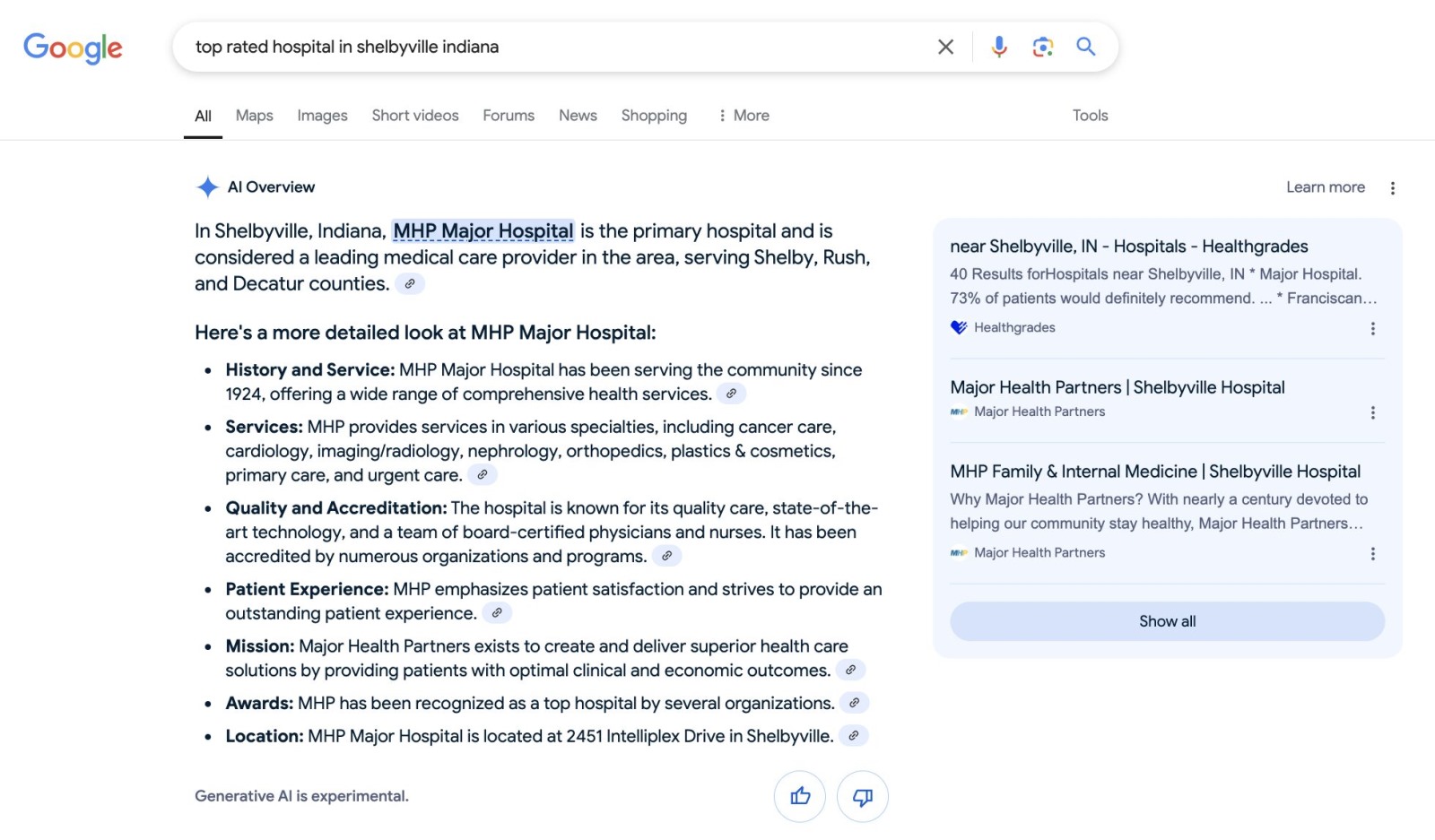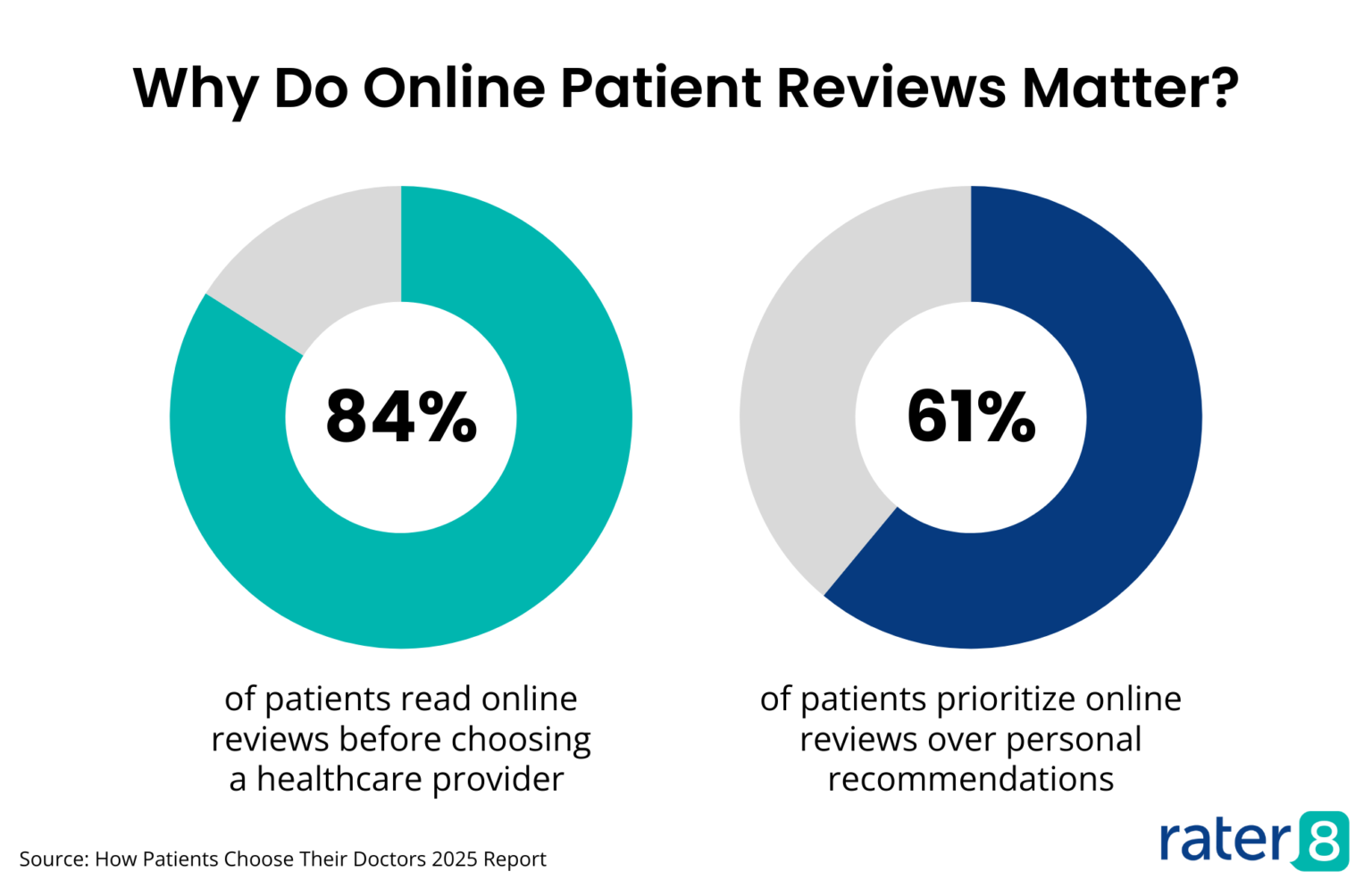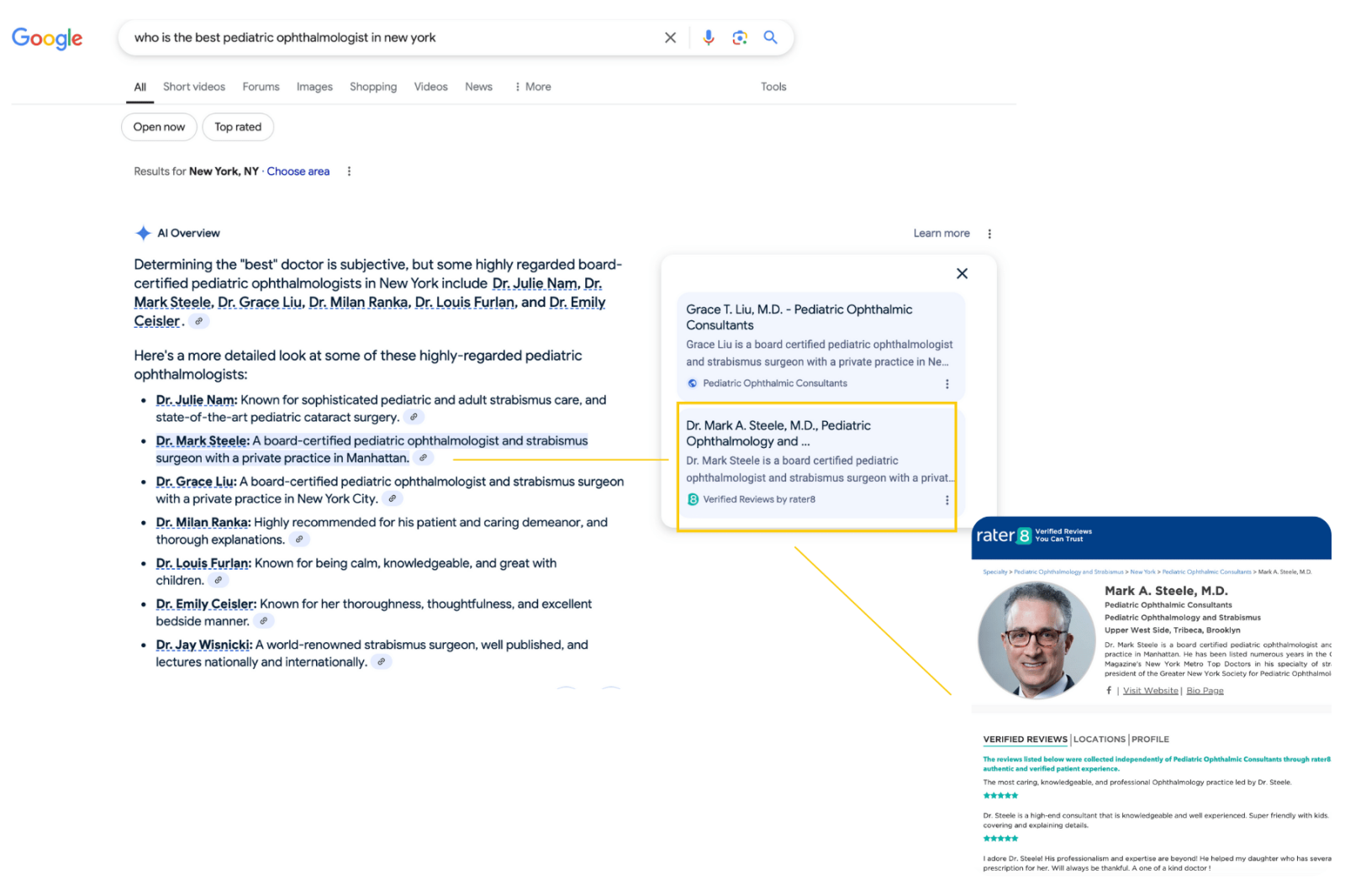AI is Already Changing Patient Search Behaviors — Here's How to Stay Ahead
AI is Already Changing Patient Search Behaviors — Here's How to Stay Ahead
The way patients search for healthcare providers has been evolving for years. With the rise of AI-powered search tools like Google’s AI Overviews and ChatGPT-driven health queries, the search landscape is undergoing another fundamental shift.
Patients are no longer typing “best orthopedic surgeon near me” into Google and clicking on the first organic or paid search link they see. Instead, they’re getting AI-curated answers that summarize the best options at the very top of the page. This means patients get the information they need without ever having to visit a provider’s website.
For healthcare organizations, this change presents both challenges and opportunities, with organic rankings and verified online presence being more important than ever. So, how do practices adapt?
The New Online Visibility Conundrum: More Impressions, Fewer Clicks
For nearly a decade, Google’s local search map that only shows the top 3 results (3-pack) influenced how patients discovered their healthcare providers. Introduced in 2015, the local 3-pack changed search behavior by displaying the top three most relevant businesses above the fold on search engine results pages (SERPs). This prime real estate gave healthcare organizations unparalleled visibility, making it easier for prospective patients to find and access care.
Fast forward to today — with search behaviors changing and AI Overviews summarizing results at the top of SERPs, most patients may never click through to a provider’s website. Instead, they get what they need from AI-generated snippets — whether it’s a provider’s name, star rating, or review highlights — pulled from the practice’s website or sourced from third-party listings like Healthgrades and Vitals. While this change makes research easier for prospective patients, it presents a unique challenge for healthcare organizations: ensuring their providers and locations stand out in AI-driven results.

This is where patient reviews play a crucial role. According to our survey of 1,000 patients, 84% of patients check online reviews before choosing a new provider, and 61% prioritize reviews over personal recommendations.

Moreover, rater8’s Verified Reviews listings make a difference. By compiling your providers’ patient reviews into an AI-friendly format, rater8 increases the likelihood that your practice will appear in AI Overviews, large language model (LLM)-generated content, and chatbot responses, ensuring that patients see a trustworthy, accurate representation of your organization.

With AI-driven search results pulling in review summaries and ratings, a strong online reputation can mean the difference between attracting new patients or losing them to the practice down the street.
Why AI Search Can’t Be Ignored
AI-powered search tools are still in their infancy, meaning they aren’t as experienced in scouring the web as traditional search engines, nor do they employ the same web-crawling methods.
Instead of ranking pages based on keywords, AI relies on structured data, also known as schema markup, on a page, which acts as a guiding signal to help better understand and prioritize the best content for the user.
As AI-driven search evolves, traditional SEO methods will no longer be enough to keep your organization at the top of search rankings — healthcare practices must adapt to this new fragmented search landscape to stay relevant and get ahead of the competition.
Patients Are Already Getting Conversational (With AI Searches)
It comes as no surprise that people are turning to LLMs such as ChatGPT, Gemini, and Perplexity to make travel itineraries or to check the weather. But it’s becoming increasingly popular to ask these models for more information about symptoms, treatments, and top providers in their area.
How Healthcare Organizations Can Stay Ahead in AI Search
-
Collect reviews across multiple platforms: AI relies on data beyond Google, meaning your practice needs a balanced online image across multiple review sites such as Healthgrades, Vitals, WebMD, and Facebook. Consistently gathering reviews on these platforms doesn’t just strengthen your online reputation, it also provides fresh, patient-generated sentiment on sites that Google and AI models already trust.
-
Increase AI-search visibility with rater8’s Verified Reviews listings: rater8’s Verified Reviews listings compile your providers’ patient reviews into an AI-friendly format, increasing the likelihood that your practice will appear in AI Overviews, LLM-generated content, and chatbot responses.
-
Double down with schema markup on your website: AI favors structured data. Using schema markup throughout your practice’s website content signals to AI that the information on the site is well-structured and can be used for queries.
-
Monitor non-traditional platforms like Reddit and Quora: Tap into discussions on platforms like Reddit and Quora. These online forums are spaces where people are having candid conversations about symptoms, treatments, and when to see a provider. Forums like these offer valuable information to AI-driven search results, with a particular emphasis on Reddit results training Gemini’s LLM.
-
Stay up to date with accurate provider and location citations: Keep your provider and location listings updated and consistent across all directories to ensure your practice is recommended in AI Overviews. Not sure how your practice appears in AI Overviews? Try asking ChatGPT to see what information is being surfaced.
Final Thoughts
AI-driven search results are changing how patients find their care, that much is clear. While this certainly presents its challenges — such as fewer website visits and keeping up with shifting the SEO algorithms — it also creates opportunities for practices to optimize their online presence for AI-driven search. Those that adapt now will reap the benefits.
Healthcare organizations that are putting forth a concerted effort to strengthen their online reputation, optimize for AI-driven search, and proactively manage patient reviews are ensuring they remain visible and recommended in AI-generated results.
The result? Prospective patients won’t just find your providers and organization, but AI-driven search will actively recommend your services at the very top of search results.
